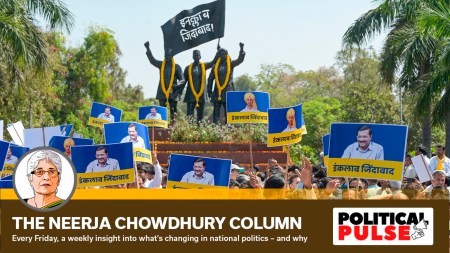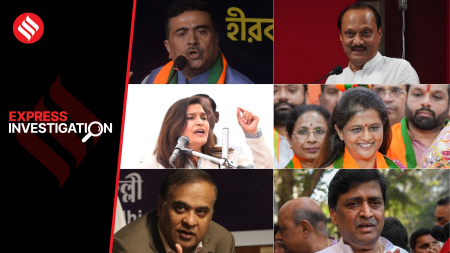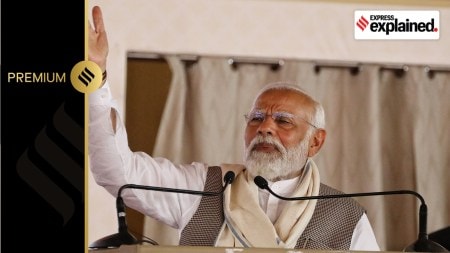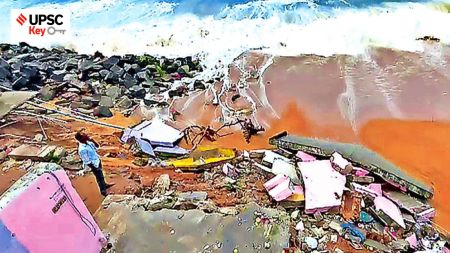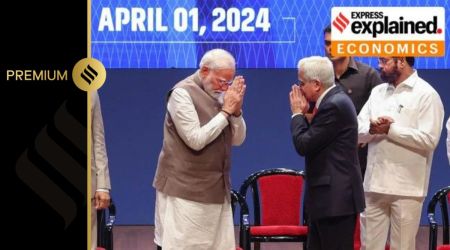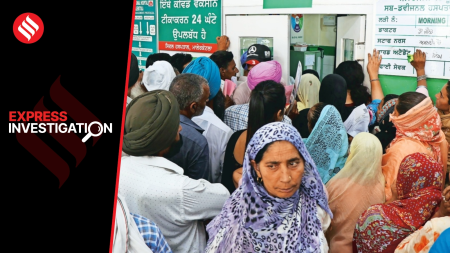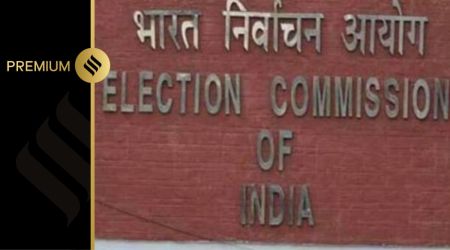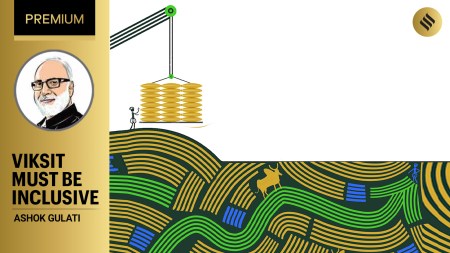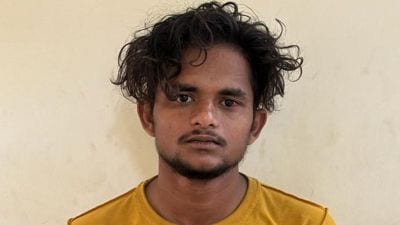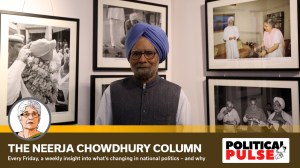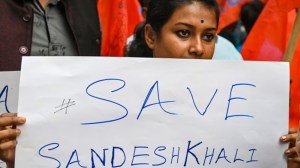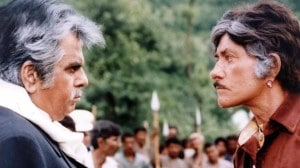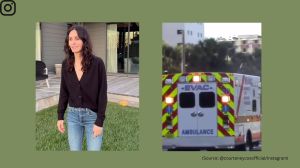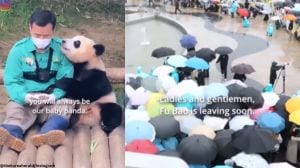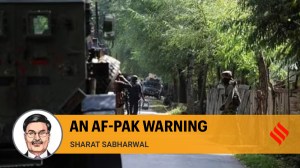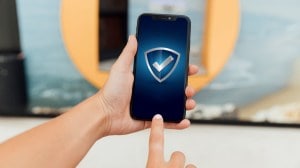- India
- International
First patient of CAR-T cell therapy in govt hospital trial now cancer-free
22-year-old from Saharanpur returns to college after clinical trial at PGIMER, Chandigarh.
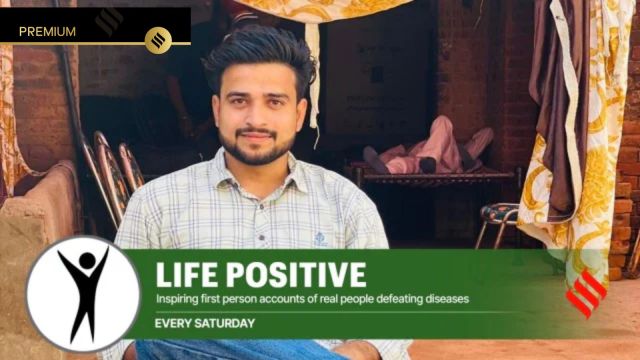 Pundir, a resident of Saharanpur, became the first patient in the country to receive the ground-breaking CAR T-cell therapy, which genetically reprogrammes a patient’s immune system to fight cancer, at a public hospital. (Express photo)
Pundir, a resident of Saharanpur, became the first patient in the country to receive the ground-breaking CAR T-cell therapy, which genetically reprogrammes a patient’s immune system to fight cancer, at a public hospital. (Express photo)Twenty-two-year-old Kamal Pundir loves the wind on his face when he runs and doesn’t count the steps, he just goes on and on… It’s something he has missed immensely ever since he was diagnosed with Acute Lymphoblastic Leukemia (ALL) a year ago. Pundir is now back on his feet, raring to make up for the missed time at college, as he is now completely cancer-free with a novel therapy at a government hospital.
Pundir, a resident of Saharanpur, became the first clinical trial patient in the country to receive the ground-breaking CAR T-cell therapy, which genetically reprogrammes a patient’s immune system to fight cancer, at a public hospital. Developed by Immuneel, co-founded by famed oncologist Dr Sidharth Mukherjee, this novel therapy for ALL was trialled for PGIMER.
PREPARING FOR THE CLINICAL TRIAL
Reflecting on his decision to opt for the trial, Pundir says he wanted to take a chance as chemotherapy wasn’t working for him, had sapped the life out of him and he had nothing to lose. “I had lost 30 kg, my hair was gone, I had no energy to even sit up on bed. I could not eat or drink and threw up the entire day and night. No matter what people say about fighting back, quitting seems an easy relief from the pain. But my doctors pulled me out of the trough. The days of the trial were a bit tense but they were supportive and calm. There was no discomfort during the therapy but there was a lot of apprehension. Imagine learning to hope one moment and be clouded by self-doubt the next,” he recalls.
Says Prof Pankaj Malhotra, Head, Department of Clinical Haematology, PGIMER, “We chose three patients for the trials and used an existing technology developed in Spain. The chimeric antigen receptor (CAR) T-cell therapy genetically modifies immune cells called T-cells in a laboratory and reinfuses them in the patient’s body, thereby enabling the re-engineered cells to target and destroy cancer cells. Pundir is not only cancer-free, he is completely off therapy and drugs and is back to college. We have told him to get back to his exercise schedule, stay away from people with contagious infections and just be regular with follow-up scans. Everything else, including diet, is just normal.”
The therapy modifies the patient’s T-cells using an inactivated HIV virus to “weaponise” them to fight the cancer cells. “We extract T-cells from a cancer patient’s body and use a virus — a modified version of HIV virus that has no risk of HIV — to deliver genes to the cells that weaponise the T-cells and can attack the cancer cells,” Dr Mukherjee had said earlier while launching the trials in India.

EARLY BATTLE WITH CANCER
Pundir recalls suffering persistent bouts of fever and constant weakness that made him consult a doctor in Saharanpur. “He suspected cancer as my bloodwork was deranged,” says the college student, who is pursuing his graduation in history and biology. He was advised to seek treatment either at AIIMS, Delhi, or PGIMER, Chandigarh. “My family was completely shaken while I was in complete disbelief. I had always been a fitness fanatic — running, exercising, drinking milk and eating a very healthy diet. Why then did it happen to me? It was only later I realised that blood cancer happens when a trigger disrupts how your body makes blood cells and overwhelms normal cells. Nobody knows what that trigger is,” he adds.
Once he was in PGIMER, doctors advised Pundir to undergo chemotherapy immediately as he had a 60 per cent chance of getting better. “My father just held my hand and never left me throughout my therapy. Family support is important to find the will to fight cancer,” he says.
Dr Charanpreet Singh, senior research associate in the department of clinical haematology, recalls that Pundir’s response to conventional therapy for ALL wasn’t positive. “The chances of cure were low with chemotherapy as his cancer was in the bone marrow. With his blood platelet counts too low, he was a high-risk patient for a bone marrow transplant. The trial had just opened and Pundir passed all tests required for the therapy. We admitted him for a month and gave him therapy through IV. We split the regime with a gap of three days,” he says. Three months after the infusion, the doctors did a PET scan and the results were clean. Pundir cleared another review earlier this month. “After this, a yearly test is done to assess the patient,” explains Dr Charanpreet.
THE RESULT OF THE TRIAL…AND A NEW HOPE
Doctors were a bit tense about the post-therapy blood report but it showed the therapy had worked. “I was ecstatic as were my doctors, who have given me a new lease of life,” says Pundir. He feels he is lucky as the cancer did return in another patient in the trial. That’s rare but not unusual. Data from large-cohort follow-up studies indicate an incidence of secondary malignancies after CAR T-cell infusion of 4-16 per cent. The extensive chemotherapy exposure of advanced stage patients is known to increase the risk of secondary malignancies. Otherwise, secondary cancers can develop due to improper integration of genes in the T-cells when they are modified. The modified retrovirus vector used to introduce the receptors could cause genetic mutations that trigger the development of cancer. But then such cases are rare and the benefits far outweigh the risks.
That’s why PGIMER doctors are keeping a close watch on Pundir and other test subjects as their continued cancer-free status will be key to approval of the therapy. Once that awaited approval comes, PGI can start using the therapy after signing an MoU between the hospital and the product provider. “The cost will be a fraction of what is charged abroad and allow more people to access a breakthrough therapy. In the US, this therapy is around Rs 2 crore, here we can offer it at Rs 30 to 40 lakh,” adds Prof Malhotra.
As for Pundir, he has gone back to his original weight of 85 kg. His hair has grown, he’s enjoying his runs and is loving his nuts and milk, his favourites. “I will complete my graduation as I lost a year to treatment and want to start my own business in finance. I feel like myself all over again,” says Pundir, determined to fight back future challenges.
Apr 04: Latest News
- 01
- 02
- 03
- 04
- 05


